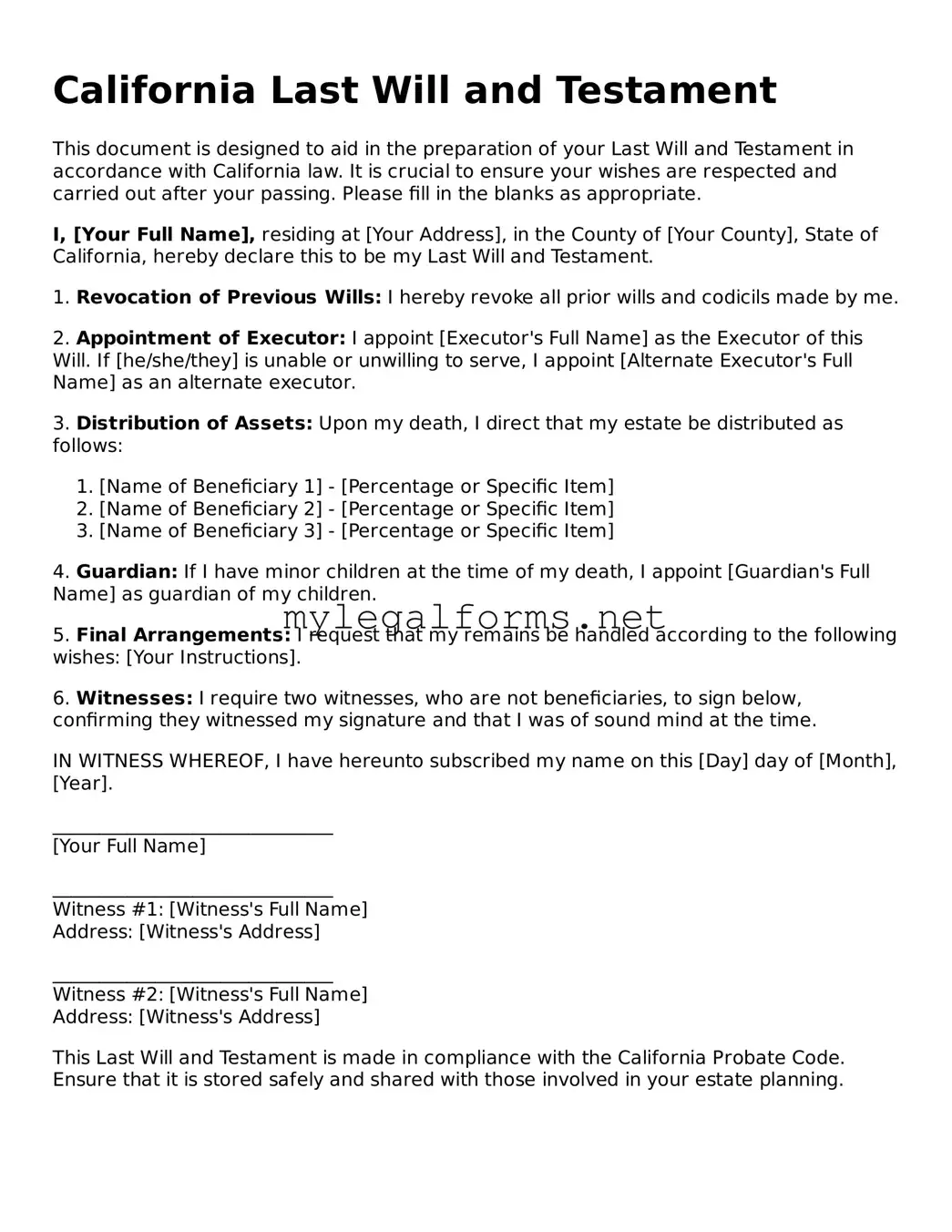Last Will and Testament Document for California State
A California Last Will and Testament form is a legal document that outlines how a person's assets and responsibilities should be handled after their death. This form allows individuals to express their final wishes regarding the distribution of their property and the care of any dependents. Understanding this document is essential for anyone looking to ensure their intentions are honored.
Launch Last Will and Testament Editor

Last Will and Testament Document for California State
Launch Last Will and Testament Editor

Launch Last Will and Testament Editor
or
⇓ PDF Form
Complete the form at your pace — fast
Finish your Last Will and Testament online and download the final version.